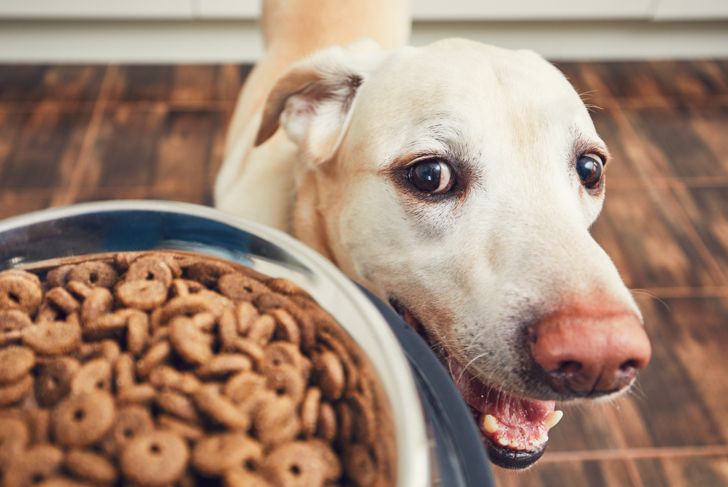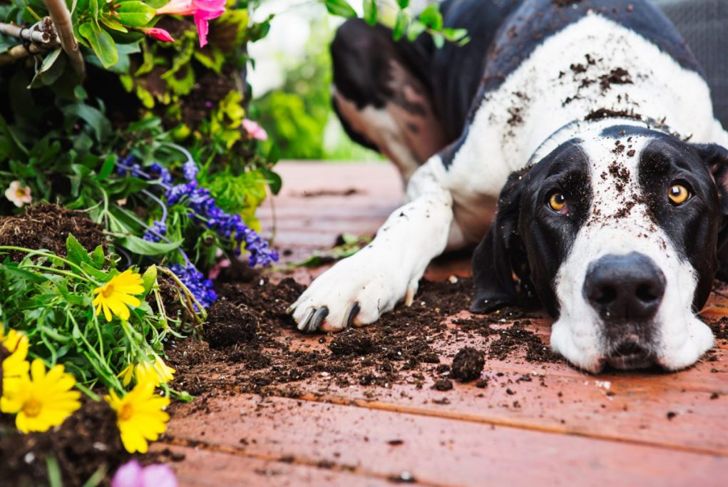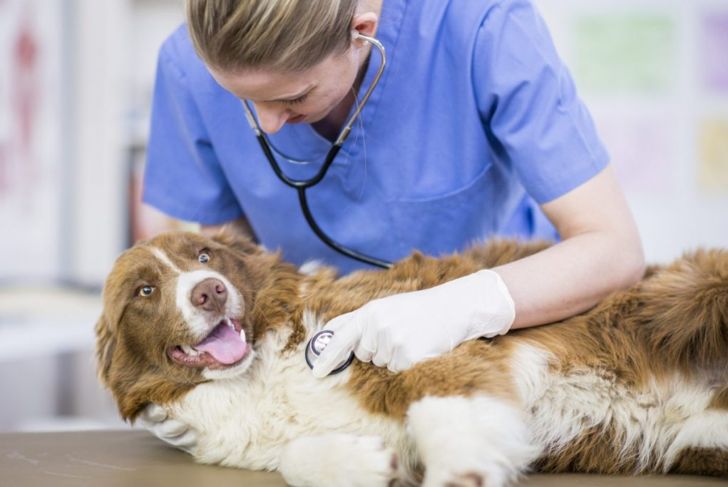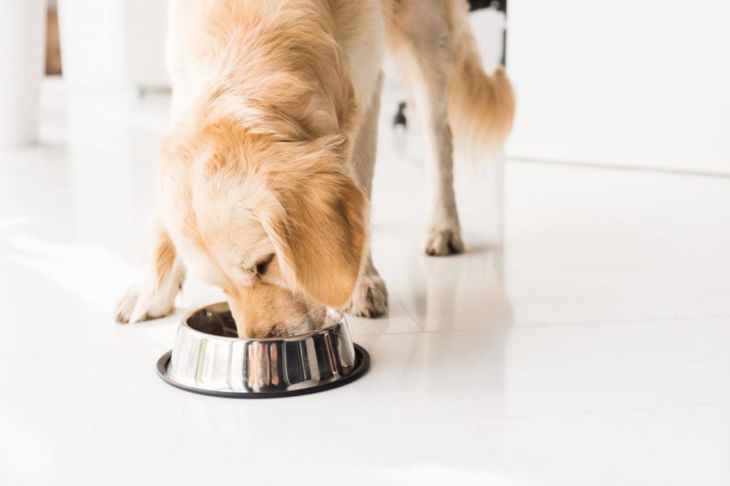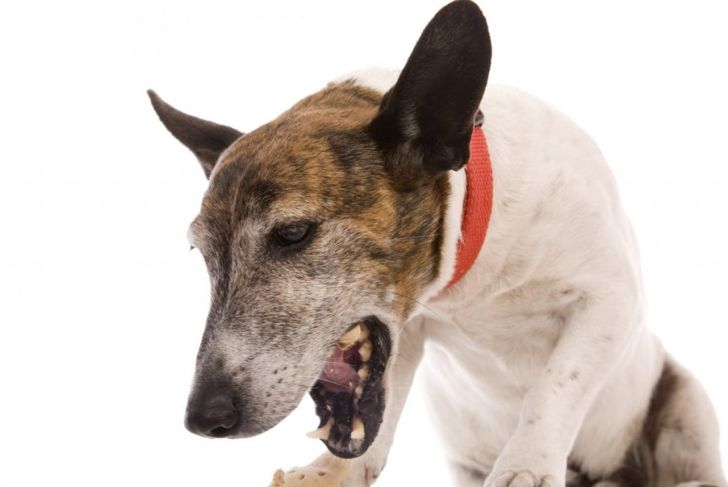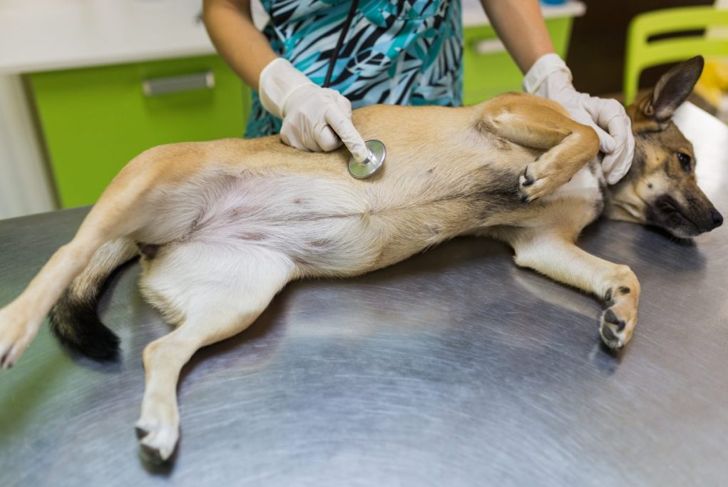You and your dog stick together through thick and thin and in sickness and in health. Your pooch is there to comfort you when you’re feeling under the weather. But what happens when it’s your dog that’s sick? If your dog is vomiting, it’s easy to panic and think something is seriously wrong. But not every vomiting session should have you rushing your best friend to the veterinarian. Dogs throw up for many reasons. It’s important for you to learn the difference between what’s serious and what’s not.
Why Dogs Vomit
Vomiting is very common in both young and old dogs. There are many reasons why it happens, but the most common is stomach problems. If your dog is like most, he or she gets very excited at meal time. They tend to eat too much food too quickly. In this instance, your dog throws up just to get rid of what’s in its stomach. If they don’t display any other symptoms, and the vomiting does not continue, there should be no need to take matters further.
Overeating
It’s not a pleasant thing to do, but there is no way around the fact that you need to identify what’s in your dogs vomit. Are there chunks of food? Can you tell what those chunks are? Chunks indicate that the food has not been in the stomach for very long. A dog throwing up food may just be a sign of overeating or running around too much or too soon after meal time. If you can’t identify what your dog has ejected, it could be because of dietary indiscretion.
Dietary Indiscretion
Unfortunately, all dogs will try and eat things they’re not supposed to. Garbage, spoiled food, grass, string, and paper seem to be some of their favorites. This poor canine judgment is sometimes known as dietary indiscretion. Much like humans, if your dog has eaten something they shouldn’t, they may vomit to get something out of their stomach. If it’s a one-off occurrence, then it should be harmless. However, if your dog keeps throwing up, it could be time to think about a trip to the vets.
Digested Food
If your dog’s vomit is more fluid than chunky in appearance, food has probably been in the stomach for a while digesting. You may notice some granules that look like coffee grounds. This is an indication that there’s blood present. A dog throwing up blood is not always a cause for concern. It could still be an indication that your pet has eaten something that’s disagreed with them. However, if there are other symptoms take your dog to the vets as blood in vomit could indicate that there’s a more serious problem with the stomach, kidneys, or liver.
Empty Stomach
A dog throwing up yellow foam or liquid indicates that there is no food in the stomach. The yellow color comes from bile, a fluid produced in the liver to aid digestion. When bile enters an empty stomach, it can cause irritation. If there are no other symptoms, consider reducing the time between meals. This doesn’t mean feeding them more. Just split one portion into two or three smaller meals. If the vomiting continues and there is a loss of appetite, lethargy, or diarrhea, take a trip to the local vets to get your pooch checked out.
Repetitive Vomiting
Although vomiting is common in dogs, it will often be a single occurrence. If it happens more than once but your dog is still behaving normally, wait 12-24 hours and see what happens. Hold back their food to give the stomach lining time to recover. Begin introducing food gradually, starting with something bland like chicken and rice. If they keep it down gently get your dog back onto their regular diet.If your dog keeps throwing up, is lethargic, refuses food, or has a tender belly then get them to the veterinarian as soon as possible. Dehydration may set in, which will cause further complications.
Lung Problems
Your dog throwing up white foam can be an indication of a problem with the lungs. What they are actually doing is coughing up from their lungs rather than vomiting from the stomach. This frothy substance can also have a pink or brown tinge, which would mean it contains blood. Lung infections, diseases, kennel cough, and congestive heart failure can cause dogs to cough up foam. Take your dog to the vets to eliminate any serious conditions.
Vomiting vs. Regurgitation
Vomiting and regurgitation may seem like the same things but are, in fact, very different. When a dog vomits, they use effort to bring up food or liquid. It may involve abdominal heaving as there’s a forceful ejection of the contents contained in the stomach and upper intestines.On the other hand, regurgitation happens more naturally, requiring no effort or strain. It’s more of a gentle ejection of undigested food. Continual regurgitation can be an indication of a problem with the esophagus, hernia, thyroid disease, immune-mediated disease, or polymyositis.
When to Visit the Vet
A one-off episode of vomiting is not a worrying sign, especially if your dog continues to eat normally and have regular bowel movements. If your dog keeps vomiting and has any of the following symptoms, seek veterinary attention straight away.
- Dehydration
- Diarrhea
- Blood in their vomit
- Loss of appetite
- Weight loss
- Pale or white gums
- Increased or decreased urination
- Lethargy
- Abdominal pain
Dogs vomit for so many reasons that even a vet can find it difficult to make a diagnosis. You need to provide as much information as possible, so be sure to note down all the symptoms your dog is experiencing.
Toxic Substances
Dietary indiscretion sometimes leads to dogs ingesting something that could be harmful to them. In extreme cases, you may need to induce vomiting to protect them. If your dog swallows a toxic substance, call your vet immediately.Tell the vet exactly what your dog swallowed, how long ago, and how much. They’ll advise you on the best course of action. If that action is to induce vomiting, force your dog to swallow hydrogen peroxide using a turkey baster.Certain chemicals will do more harm if they come back up. Only force your dog to vomit if instructed to do so.

 Home
Home Health
Health Diet & Nutrition
Diet & Nutrition Living Well
Living Well More
More
